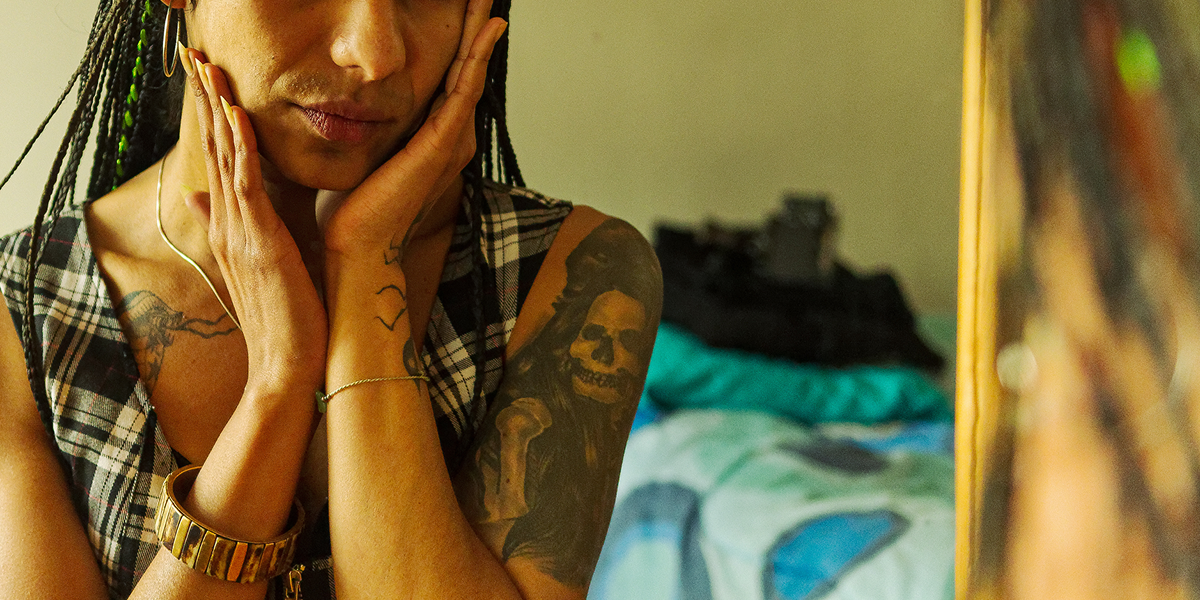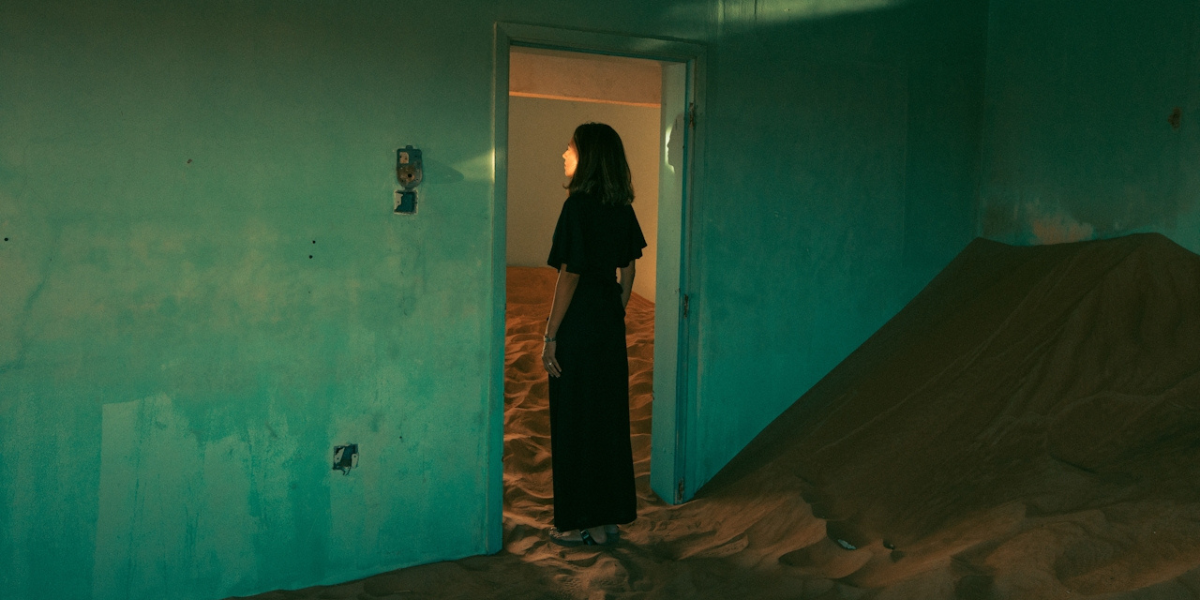When The Bold Type’s Jane Sloan got tested for genetic mutations linked to increased breast cancer risk, it changed my life.
The Bold Type followed three best friends fairly early in their careers at a magazine in New York City. It was on a few years ago now, but at the time was known for boundary pushing story lines from a social media protest about freeing the nipple to a bisexual character who wanted to peg her straight boyfriend. Jane, a writer at the magazine, had lost her mom to aggressive breast cancer at a young age and was still coping with the trauma. Until this point my only reference for genetic cancer testing was when Angelina Jolie was highly criticized publicly for the decision to do a double mastectomy and breast reconstruction surgery to protect herself from her own genetic cancer risk. I remember every celebrity magazine, gossip show, and radio station questioning whether or not Angelina would still be a real woman. It’s absurd to recall this now that I think everyone has completely forgotten about something that had been deemed so controversial and so detrimental to Angelina’s gender. The Bold Type was a much-needed different take on this story. Jane decided to pursue genetic testing to look for BRCA genes, genes known to greatly increase the odds of developing cancers like breast, ovarian, pancreatic, prostate, and colon cancer. When the test came back positive she chose surgery as well, just like Angelina Jolie. But Jane wasn’t criticized; she was supported by her workplace, friends, and boyfriend. Her support network went to appointments with her, took care of her, and affirmed her decision as the right one for Jane and her body.
I knew that there was a history in my family of multiple people with cancer, including breast cancer. It was something that always made me anxious in that way that lurks in the back of your mind until one night you can’t sleep because you start thinking through every worst-case scenario. But I had no idea that science had options to help me learn about my inherited risk and take more proactive steps for prevention and early screening (I mean sure Angelina Jolie had done it, but I wouldn’t assume that meant it was accessible to the general population).
I admit I didn’t take immediate action by seeking out genetic testing right away, but I knew that it might be something I would want to do someday. So in 2022, when I went to a new doctor that asked me about my familial cancer history, I asked about doing genetic testing. The practice was part of a larger hospital system and, it turned out, had recently added genetic cancer risk testing to their gynecology team. The doctor agreed that given my family history I should do the testing and gave me a referral. She pointed to a flyer on the wall about the genetic testing service. It says that people are eligible for testing based on new diagnosis of breast cancer from a biopsy, personal history of breast cancer, or family history of ovarian, fallopian, peritoneal, uterine, colon, pancreatic, prostate, melanoma, or breast cancer.
According to the CDC, “BRCA1 and BRCA2 are two genes that are important to fighting cancer. They are tumor suppressor genes. When they work normally, these genes help keep breast, ovarian, and other types of cells from growing and dividing too rapidly or in an uncontrolled way. Sometimes a change or mutation occurs in the BRCA genes that prevent them from working normally.”
When I got home, the first thing I did was some research on insurance coverage for BRCA testing, and I found out from health.gov that insurance companies are required to cover testing for “women who are considered higher risk of developing breast cancer” and that most insurance will cover it either way if it’s recommended by your doctor. My insurance requires a pre-authorization to cover the testing. It’s worth noting that the health.gov site does not say how this policy requiring coverage defines women, and that is unhelpful and frustrating given that BRCA also raises the risks for other cancers, including prostate cancer, and AMAB people can get breast cancer too.
But I also learned that the same protections that mean insurance companies have to cover BRCA testing and not kick you off your plan if it comes back positive, do not apply to life insurance companies. So I delayed, went down a panic rabbit hole of trying to figure out if I should get life insurance only to find out I couldn’t actually get approved for life insurance. and getting rejected. That set off its own existential crisis. Life insurance companies already think I’m too likely to die from other chronic illnesses without knowing anything about BRCA. Cool. That’s fun. Such helpful information. Did I really want to know about more things that could kill me? Not really.
So I put everything on pause after the first appointment. I was about to move across the country anyway, so it was easy to use that as an excuse. Then, twice in 2023 I developed painful swollen lymph nodes in my armpit and I wound up needing to get my first mammogram to check if this swelling was cancer. It forced me to remember that if I have the genetic mutations that increase my risk for multiple types of cancer, especially breast cancer, they’re already there — whether or not I get the test. If I have the BRCA mutation and don’t get the test, the risk remains and I won’t know until I find a lump or an odd test result someday. On the other hand if I took the BRCA test and it came back positive, I’d have options to take proactive steps to reduce my risk and do more frequent screenings.
Now here we are in 2024! I recently submitted blood work for a full panel of eighty eight potential cancer causing genes. I’m planning to share every step of the journey from the mammogram to the test and navigating the results because I want to help our community be more empowered and informed (even if my test comes back negative, I will still examine what the options would have been if it were positive). I want to help make the process clearer and less scary for anyone who is considering it. I want to help someone learn about options they didn’t know existed that could save their life. I want to get answers our community needs but don’t easily have access to because we are often marginalized by the medical system: will insurance cover this, how does BRCA relate to top surgery, how do hormones affect BRCA risk. I want you to know the steps I took to ensure the hospital doing my testing wouldn’t limit my treatment choices based on religious views. I want to find out if those of us who are LGBTQ are at higher risk for breast cancer because people like Wanda Sykes, Tig Notaro, Melissa Etheridge, Robin Roberts, Cynthia Nixon, and Angelina Jolie, Audre Lorde, and Sally Ride have all been affected. I want to connect with other people in our community whose families have been affected by generations of cancer diagnoses. I want to find humanity mixed up in all of the science and medical.
I have no idea what I will find and where this journey will take me. It feels a little bit like I’m playing Russian Roulette – the original version, not the card game. Take a chance, pull a trigger, and find out if the Grim Reaper is waiting. A BRCA mutation can cause up to a 72% lifetime risk of developing cancer and a 44% lifetime risk of developing ovarian cancer. For those with BRCA who do develop cancer, it is much more likely to be aggressive and more likely to be deadly. These numbers are hard to comprehend, and they don’t even include the other 86 genes (there are two BRCA genes) the test is looking for, and they certainly aren’t odds I’d want to bet against in Russian Roulette – even the card game. It’s hard not to think about these numbers and spiral into doubt and fear and panic out about my own mortality. It’s hard not to think about these numbers and worry about the medical costs that come with a positive test result. It’s hard not to think about these numbers and worry about surgery, frequent testing, and an endless list of terrifying and difficult decisions. Why the fuck am I doing this again?
But then I remember the things that come with a family history of cancer: the worry, fear, cost, and loss. My grandfather died of pancreatic cancer when I was only 2. I barely remember him and I’ve spent most of my life worrying about this because it’s hard to catch pancreatic cancer until it’s “too late.” What if he could have known sooner? If he had genetic testing available could he have caught it earlier and survived?
I hope that if I do get test results back that say I have a higher risk of cancer that I won’t spend too much time panicking, but that I will be able to remember that the test itself didn’t change my genes, only my knowledge. I hope that I will feel empowered and not afraid. I hope I will feel some sense of relief in having an answer.
Realistically, I’ll still probably panic and spiral, but right now, as I start this journey, I am trying to ground myself in a place of hope, bodily autonomy, choice, and knowledge.
What to Expect When is a series from Katie Reilly shedding light on cancer and the intersection of genetics, identity, and health.
Feature image by Md Saiful Islam Khan via Getty Images








Comments
Thanks so much for this thoughtful piece! And thank you for using a .gov. A work teammate of mine just had surgery for endometrial cancer and so I feel your fear about what the results might mean!
Thank you so much for writing this, Katie. I am absolutely familiar with that strange rollercoaster of “alright, I’m doing it!” to “shit, now I’m waiting for weeks while it feels like my life hangs in the balance?” Your writing is so informative and compassionate, it is a comfort to read. I hope you find spaces of peace and joy throughout this process.
I got tested after my mom’s ovarian cancer diagnosis. I was 24. It was positive. It’s almost been ten years now.
I feel like it’s made being nonbinary feel extra complicated. I have to get my breast MRI’d and a mammogram once a year. There’s a lot of health focus I need to have on my ovaries and my breasts and untangling the recommendation to have a mastectomy in the next decade or so from whether or not I would have actually pursued top surgery of my own volition feels so messy.
Katie, thank you for this amazing piece. I appreciate your honesty and thoughtfulness about your journey, especially as someone grappling with whether to undergo genetic testing for a different condition (Alzheimer’s).
If you are up for it, I highly recommend this video. Minutes 5-20 feature a BRCA carrier talking about her her experiences as a survivor, caregiver, and previvor, and how testing affected her decisions (and led to catching cancers that otherwise might have escaped detection). This was the first time I heard from a woman of color with BRCA (I had gotten the impression it was a white thing) and it really drove home the difference the testing can make.
https://www.youtube.com/watch?v=Dix_UdS_jag&t=1721s&ab_channel=KochInstituteMIT
(The rest is on why ovarian cancer screening is so terrible and how three women engineers are trying to address the problem—the biggest takeaway is that surgeries that remove the Fallopian tubes are amazingly successful at preventing ovarian cancer.)
All you can do is your best to prepare for your health journey. I tested positive for BRCA1 when I was 28 (family history of breast cancer, and my mother asked me to be tested as a bday present). At 39, I had a bilateral mastectomy and at 40 a full hysterectomy including oophrectomy. I made those decisions after looking at my options, my family history and the consequences either way, and I feel incredibly lucky to have the choices I did, despite paying for a chunk of each of the surgeries out of pocket.
I went into medical menopause immediately after the 2nd surgery, and I’m now at higher risk for heart disease and osteoporosis but that was preferable to me than the anxiety of waiting for ovarian cancer to potentially show.
I look forward to the day that queer people and feminists no longer portray the maximum amount of medical intervention is necessary in order to be empowered, and no longer support forcing women to undergo medical procedures against their will, and instead respect women to make their own choices, which includes opting out of medical procedures that are not in line with their values without needing to justify it or being told that they’re wrong.
I also look forward to the day when these sorts of tests will be framed within reality, meaning that they will not be considered lifesaving or in any way meaningful, and will instead be portrayed as what they are, a slim to moderate chance to artificially extend your life. No amount of medical intervention makes you immortal.
Unfortunately queer people and feminists believe that I deserve to have been raped with a medical procedure that I did not consent to, and they also believe that I deserve to be berated and shamed by a Planned Parenthood clinician for not wanting to undergo genetic testing for breast cancer. I hope that in the future this website does a better job of including the voices of all Queer women, not this those who share their incredibly limited and narrow value system around what it means to be empowered in their bodies.
This is an interesting American view of this issue, and in the series it might be interesting to look at how medical professional in other countries guide you through this process.
I’m in the UK so don’t need to think about costs, but probably have longer waiting lists. A friend of mine is going through this at the moment as her mum died recently and there’s a lot of cancer in her family, and before they considered a test she had to go to genetic counselling to work out what she would do with the knowledge – if you’re not going to have proactive surgery then knowing you’ve got BRCA may do more harm than good – so she’s having the test with a clear eyed idea of what the next steps would be.
I imagine in other countries they have other different approaches to decision making and maybe even different options if you do test positive.
Good luck with it all.
Thanks for writing this. When I was diagnosed with BRCA mutations, I was like “why isn’t there a What to Expect When You’re Expecting…” (in my case, hysterectomy and oophorectomy and surgical menopause, planned for the summer to minimize ovarian cancer risk) and now here it is!